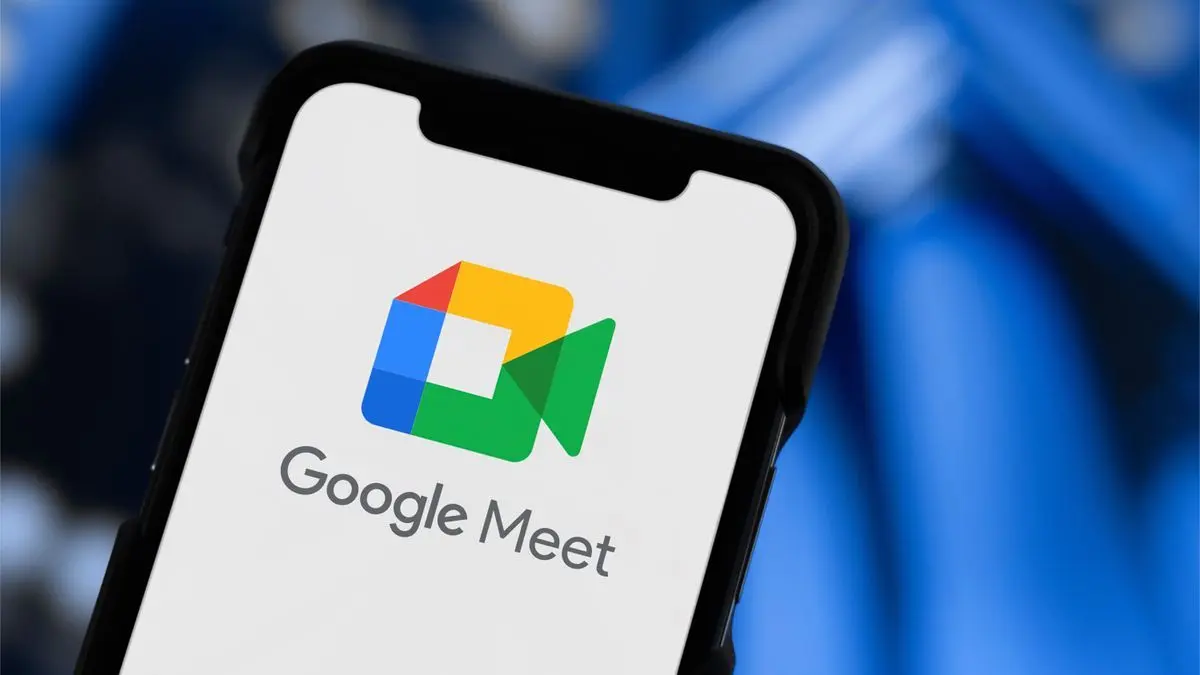ChatGPT Usage Among Teens for Schoolwork Doubles, Raising Questions About AI in Education
4 Sources
4 Sources
[1]
More teens say they're using ChatGPT for schoolwork, a new study finds
The rise of ChatGPT and learning language models have understandably disrupted almost every knowledge industry, and education systems are no exception. A recent study from the Pew Research Center examined the way that high school students interact with ChatGPT for their schoolwork. The results shed some light on the matter but suggest there's still more to uncover. 26% of US teens (aged 13-17) are reported to utilize the famous AI tool, double that of 2023. The data also reports that only 79% of teens have even heard of ChatGPT. This figure appears awfully low, given the extent to which schools and universities are scrambling to establish new curriculums and policies in response to the chatbot. While the study openly outlines the testing methodology, the student in me is prone to suggest that, well, schoolers don't want to incriminate themselves. Given the media coverage of OpenAI, the tech savviness of a youth generation, and the discourse within education in general, it's hard to believe that the figures would truly be that low. The data also delineates factors of racial difference and age, highlighting that black & hispanic teens, at 31% each, are more likely than white teens to use ChatGPT at 22%. In terms of tasks, 54% think using ChatGPT for research is acceptable, 29% for math problems, and 18% for essays. Again, these questions don't exactly incentivize an honest response. AI has been the buzzword of the last few years: while we appreciate the efforts to understand the extent to which it affects behavior in schools - our intuition says that we'll have further to go with effectively capturing it.
[2]
Here's how many teens use ChatGPT for homework help and 'research' now
The number of teens who admitted to using ChatGPT as a homework helper more than doubled last year, according to a recent survey from the Pew Research Center. The team surveyed teens 13 to 17, finding that students are becoming increasingly familiar and comfortable with the technology the longer it and they are around. According to the survey, about 26% of teens used the AI chatbot to help them complete their schoolwork in 2024 -- up from 13% in 2023. The majority (73%) of adolescents still said they don't use the technology to complete their assignments. But attitudes are shifting. One of the most striking changes from last year is the increased use of ChatGPT by black and hispanic teens for school-related tasks. In 2023, 13% of black and 11% of hispanic teens reported using the chatbot for academic purposes. However, by 2024, that number surged to 31%. In comparison, white teens remained less likely to turn to ChatGPT for schoolwork, with only 22% reporting its use in 2024, though this is still an uptick from the previous year. Along with black and hispanic students, older teens are also embracing technology to upgrade their homework help. Interestingly, there was no significant difference in ChatGPT usage based on gender or household income. "It's out there," Pengcheng Shi, an associate dean in the Department of Computing and Information Sciences at Rochester Institute of Technology, previously told The Post. "You cannot stop people from using it, so now the question becomes, how to best use it," he added. How do teens think the technology can appropriately be used? Overall, teens' acceptance of its role varied depending on the task input into the chat. Most teens (54%) agreed it's acceptable to use ChatGPT for researching new topics -- only 9% disagreed. However, they were much less supportive of using the technology to complete more in-depth tasks or finish assignments. Teens were divided on their views of using ChatGPT to solve math problems (29% say it's acceptable and 28% say it's not) and mostly agreed it's wrong to rely on the program to type up an essay (18% say it's alright but 42% say it's unacceptable). "I think the pressure here is less on students, and much more on faculty to really find a way to incorporate new technologies," Jamie Cohen, an assistant professor of media studies at CUNY Queens College, previously told The Post. "You have to explain how these systems work, what the data sets are, why the data sets are flawed and why this isn't an acceptable way of handing in a paper," Cohen said. Students who are familiar with ChatGPT are more likely to use it for schoolwork and consider it acceptable -- about 56% of those who've heard "a lot" about ChatGPT use it for their schoolwork, compared to just 18% of teens who have only heard "a little" about it. These mixed opinions reflect the ongoing debate around the ethics of using AI tools -- the conversation updates along with the technology.
[3]
More teens say they're using ChatGPT for schoolwork, a new study finds
I also type with a pencil in my hand. EyeEm Mobile GmbH/Getty Images hide caption A recent poll from the Pew Research Center shows more and more teens are turning to ChatGPT for help with their homework. Want to understand the impact of tech on your body and how to live better with your devices? Subscribe to the Body Electric newsletter. At this point, these concerns have been covered widely in the media. When the chatbot first became broadly accessible to the public in late 2022, some school districts took a restrictive approach and enacted bans to prevent the tool from being abused by students. Now, many districts have softened or reversed those bans. The Los Angeles Unified School District even began implementing their own AI tool called Ed. But as Khari Johnson reported last year for CalMatters, there is little state regulation or oversight for AI implementation in California school districts. And while using these tools can lead to improved efficiency for, say, teachers grading papers, it has also been shown to give students grades that are inconsistent with the quality of their work. "I think the AI regulatory regime that is emerging in a lot of places says that higher scrutiny should be placed on AI models with the possibility of having adverse impact on people's lives. And this seems like it could potentially fit that description," Johnson told NPR's Ailsa Chang.
[4]
ChatGPT is the homework helper for more than a quarter of teens - and the trend is accelerating
Far fewer support using ChatGPT to write essays or solve math problems I'm old enough to remember when teachers said we couldn't use a calculator in tests because we wouldn't always have one in our pockets, and they would check essays that seemed familiar against their entry on the Encarta CD-ROM encyclopedia. Teachers today are faced with the far more sophisticated tools offered by ChatGPT and other AI chatbots, whose popularity has skyrocketed among students, according to a new report from the Pew Research Center. The percentage of teenagers using ChatGPT for schoolwork doubled from 13% in 2023 to 26% a year later. Let's face it: schoolwork isn't always the most thrilling part of a teenager's life. It's not shocking a lot of teens are turning to AI for a little academic assistance. But the details of how ChatGPT is used by students are a little more nuanced. Pew's research found that a slight majority of 54% of teens are okay with using the AI chatbot for tasks like researching new topics, which is hard to claim is an attempt to cheat. That approval drops to 29% for using ChatGPT to solve math problems, and only 18% of teens think it's acceptable to get ChatGPT to write essays for them. ChatGPT's prominence makes it likely to be the most widely used of the many options. Even if all of the respondents were scrupulously honest about whether they used ChatGPT for schoolwork, that doesn't mean they haven't dabbled with Gemini, Claude, Perplexity, Meta AI, Microsoft Copilot, or any of a million apps that serve as a wrapper for ChatGPT's model. The Digital Education Council released a survey in August that pegged the global use by students of some kind of AI at a far higher 86%. Students who aren't just turning in ChatGPT-written essays may actually be improving their education in creative ways. With the right approach, AI can be a great educational supplement, but never a replacement. Even the best ChatGPT prompt won't replicate the experience of wrestling with an idea until you finally get it. There are already some experiments in that vein, with Arizona State University (ASU) working with OpenAI to incorporate ChatGPT and London's David Game College running an AI-taught class as part of its new Sabrewing program. There's reason for concern over students becoming overly reliant on AI and not learning to think critically and solve problems independently. On the other hand, AI in education can mean, if leveraged properly, offering students access to personalized resources they might not otherwise have. That's the tougher but probably best recourse since even the strictest policies are unlikely to stop students from using AI in any context they can. You'd need a school that replaces all homework with oral presentations and requires all research to be done using paper books to prevent it.
Share
Share
Copy Link
A new Pew Research Center study reveals that ChatGPT usage among teens for schoolwork has doubled in the past year, sparking debates about AI's role in education and its impact on learning.

ChatGPT Usage Among Teens Doubles in One Year
A recent study by the Pew Research Center has revealed a significant increase in the use of ChatGPT among teenagers for schoolwork. The percentage of US teens aged 13-17 utilizing the AI tool has doubled from 13% in 2023 to 26% in 2024
1
2
. This surge in adoption raises important questions about the role of AI in education and its potential impact on learning outcomes.Demographic Trends in ChatGPT Usage
The study uncovered interesting demographic patterns in ChatGPT usage:
- Black and Hispanic teens are more likely to use ChatGPT for academic purposes, with 31% of each group reporting its use in 2024, up from 13% and 11% respectively in 2023
2
. - White teens are less likely to turn to ChatGPT for schoolwork, with 22% reporting its use in 2024
2
. - Older teens are embracing the technology more readily than their younger counterparts
2
. - No significant differences were found in usage based on gender or household income
2
.
Attitudes Towards AI in Education
The study also explored teens' attitudes towards the appropriate use of ChatGPT in various academic contexts:
- 54% of teens believe it's acceptable to use ChatGPT for researching new topics
2
4
. - 29% think it's acceptable to use ChatGPT for solving math problems
2
4
. - Only 18% consider it appropriate to use ChatGPT for writing essays
2
4
.
These mixed opinions reflect the ongoing debate surrounding the ethics of using AI tools in education
2
.Related Stories
Implications for Education Systems
The rise of ChatGPT and similar AI tools has disrupted traditional education systems, prompting schools and universities to reassess their curricula and policies
1
. Some educational institutions have taken proactive steps:- The Los Angeles Unified School District has implemented its own AI tool called Ed
3
. - Arizona State University (ASU) is collaborating with OpenAI to incorporate ChatGPT into its programs
4
. - London's David Game College is running an AI-taught class as part of its new Sabrewing program
4
.
However, concerns remain about the lack of state regulation and oversight for AI implementation in school districts
3
.Challenges and Opportunities
The increasing use of AI in education presents both challenges and opportunities:
-
Potential for academic dishonesty: There are concerns about students becoming overly reliant on AI and not developing critical thinking skills
4
. -
Improved efficiency: AI tools can help teachers with tasks like grading papers
3
. -
Personalized learning: AI has the potential to offer students access to personalized resources they might not otherwise have
4
. -
Inconsistent grading: Some AI tools have been shown to give students grades that are inconsistent with the quality of their work
3
.
As AI continues to evolve, educators and policymakers face the challenge of finding ways to incorporate these new technologies effectively while maintaining academic integrity and fostering genuine learning experiences.
References
Summarized by
Navi
Related Stories
Recent Highlights
1
French Police Raid X Office as Grok Investigation Expands to Include Holocaust Denial Claims
Policy and Regulation

2
OpenAI launches Codex MacOS app with GPT-5.3 model to challenge Claude Code dominance
Technology

3
Anthropic releases Claude Opus 4.6 as AI model advances rattle software stocks and cybersecurity
Technology








